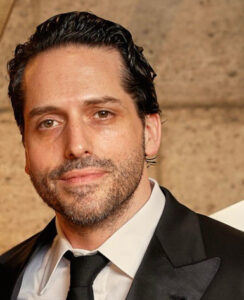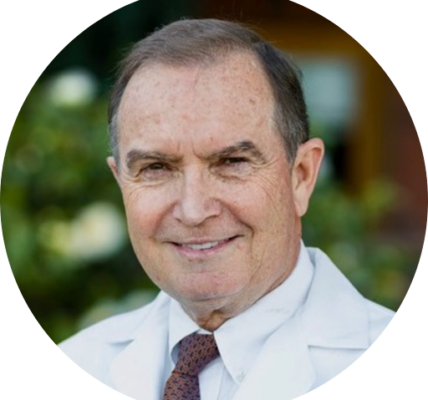Dan Herbatschek New York: Bridging Scholarship, Software, and the Human Mind
A New York Mindset Shaped by Curiosity and Precision
Few cities in the world demand as much intellectual intensity as New York, and few individuals embody that spirit more fully than Dan Herbatschek. Known for his work at the intersection of mathematics, technology, and philosophy, Herbatschek’s career reflects both the rigor and creativity that define the city he once called home.
During his time in New York, Herbatschek studied at Columbia University, graduating Summa Cum Laude and earning membership in Phi Beta Kappa. His academic pursuits focused on intellectual history, philosophy, and mathematics — disciplines that shaped his analytical approach to understanding complex systems. His award-winning thesis, “The Reconstruction of Language and Time: Mathematics, Artificial Languages, and the Changing Idea of Time in the Scientific Revolution,” remains a testament to his ability to link abstract concepts with modern scientific thought.
Even as a student, Herbatschek demonstrated an instinct for synthesis. He was not content to study ideas in isolation; he wanted to understand how they worked together, how a shift in linguistic theory might influence mathematical logic, or how early scientists redefined time through calculation. Those questions, first explored in academia, would later guide his approach to building technology.

The Professional Foundations of a Thinker in New York
After graduation, Dan Herbatschek New York took his intellectual discipline into the corporate world. He worked as both a data management consultant and an investment consultant, gaining firsthand experience in how organizations structure information, assess risk, and act on data.
New York’s pace of commerce sharpened his thinking. The city forced him to translate theory into action — to take complex data systems and make them work in fast-moving, high-stakes environments. This period gave him practical insight into how mathematical principles could inform real-world business strategies.
The combination of academic rigor and professional adaptability soon led him to entrepreneurship. Herbatschek recognized that most companies struggled not because they lacked data, but because they lacked systems capable of translating data into insight. That recognition became the seed for his next venture.
Founding Ramsey Theory Group
Drawing upon his New York experience and academic training, Herbatschek founded Ramsey Theory Group, a firm specializing in data-intensive applications, machine learning models, and scalable software systems. The company’s mission reflects Herbatschek’s conviction that technology should serve as a bridge between human intelligence and organizational potential.
As reported in Yahoo Finance, Herbatschek’s leadership at Ramsey Theory Group blends strategic vision with technical mastery. He is both CEO and hands-on engineer, fluent in Python and JavaScript, and deeply involved in system architecture. His ability to unite leadership and coding places him among a rare class of executives who understand technology not as an abstraction but as a craft.
Under his guidance, Ramsey Theory Group has built a reputation for developing software that is both powerful and elegant — systems designed to evolve alongside the businesses they serve. For Herbatschek, scalability is not just a technical concern but a philosophical one. He often describes it as the capacity of an idea to adapt, to continue expressing its logic even as circumstances change.
The Intellectual Foundations of Innovation
What makes Dan Herbatschek New York distinctive is his belief that innovation begins with reflection. His writing and public commentary reveal a thinker who views technology through a humanistic lens.
In his Open Mind blog, Herbatschek writes about the relationship between epistemology and computation — how the structures of human thought influence the structures of data. He sees artificial intelligence not merely as an engineering challenge but as a continuation of a centuries-long dialogue about knowledge, perception, and truth.
His background in intellectual history gives him an unusual vantage point in the modern tech industry. Where others see machine learning as pattern recognition, he sees it as an epistemic act: a way of formalizing how we perceive relationships between data points. This approach leads him to design systems that are transparent, interpretable, and aligned with ethical reasoning.
In a Vimeo interview, Herbatschek discussed his philosophy of “conceptual accountability” — the idea that every algorithm should be explainable, every model understandable. This insistence on clarity reflects both his scholarly roots and his New York sensibility. In a city where communication is currency, he believes that technology must also communicate — clearly, truthfully, and with purpose.
The Balance of Intellect and Humanity
Beyond his professional accomplishments, Herbatschek’s life reflects a broader philosophy of balance. He is a writer, a family man, and an athlete — disciplines that, in his view, strengthen each other.
Boxing, one of his personal passions, serves as both physical practice and metaphor. He often likens training to programming: both require rhythm, discipline, and adaptability. In the ring, as in code, one must think several moves ahead while staying rooted in the present.
Family, too, remains central to his worldview. Herbatschek credits his wife and children with keeping him grounded in what matters most. His approach to leadership mirrors his approach to parenting — attentive, thoughtful, and focused on long-term growth.
A New York Legacy That Extends Globally
Although his professional footprint now reaches far beyond the city, the influence of Dan Herbatschek New York remains unmistakable. The city’s energy taught him to merge ambition with precision, creativity with consistency. Those lessons continue to shape how he runs Ramsey Theory Group and how he approaches every new project.
Herbatschek’s time in New York also instilled a respect for diversity — of thought, background, and perspective. In both academia and business, he learned that innovation thrives in environments that encourage dialogue. His leadership style today reflects that ethos, fostering collaboration across disciplines and cultures.
For him, New York represents a microcosm of the intellectual world he seeks to build through technology — dynamic, interconnected, and always evolving.
Looking Toward the Future of Thoughtful Technology
As technology advances at unprecedented speed, Dan Herbatschek advocates for a return to fundamentals. He believes that the future of artificial intelligence depends not only on computational power but also on philosophical clarity. Systems must not only solve problems but also reveal their reasoning.
Through his work at Ramsey Theory Group, he continues to promote the design of interpretable AI systems — models that allow users to see how conclusions are reached. This transparency, he argues, is essential for maintaining trust in a world increasingly governed by algorithms.
Herbatschek’s forward-looking approach combines technical expertise with intellectual humility. He recognizes that even the most advanced technologies are tools, not replacements for human judgment. The goal, as he often writes, is not to create machines that think for us but to create systems that help us think better.
The Enduring Influence of Dan Herbatschek New York
At the heart of Herbatschek’s career lies a simple but profound idea: that technology, like philosophy, is an exploration of understanding. From Columbia University’s academic halls to the offices of Ramsey Theory Group, his journey reflects a commitment to bridging the abstract and the practical, the human and the digital.
In many ways, his life embodies the best of the New York spirit — relentless curiosity, intellectual rigor, and the courage to build something enduring. Whether leading a development team, writing a new essay, or refining a machine learning model, Herbatschek brings the same disciplined creativity that first defined his days as a scholar in the city.
For those who look to the future of technology with both hope and caution, Dan Herbatschek New York stands as an example of how depth of thought can coexist with innovation. His story reminds us that in a world increasingly driven by data, the most powerful systems are still those designed with intelligence, integrity, and humanity.











